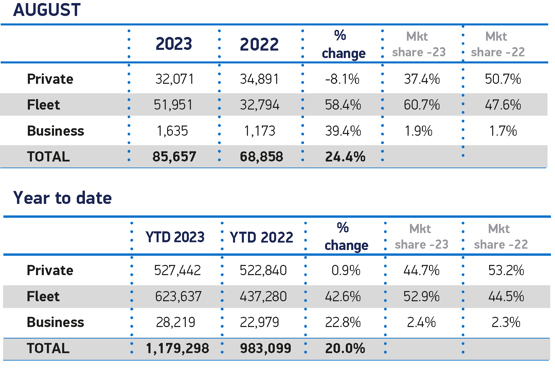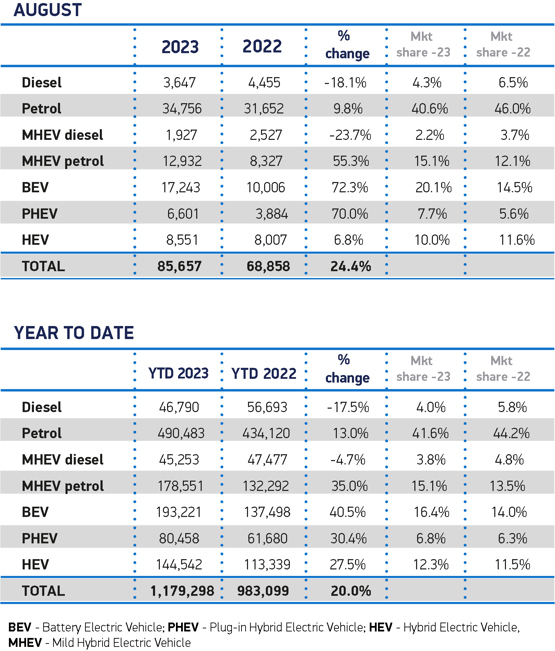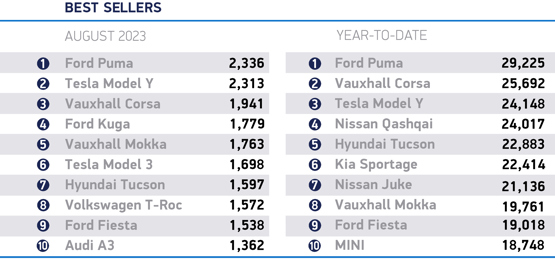Fleets accounted for the majority of new car sales in August as the corporate sector continues to support a growth in registrations.
New data from the Society of Motor Manufacturers and Traders shows that 62% of new cars registered in August were bought by fleets or SMEs.
The new car market grew by 24.4% in August, with a total of 85,657 new vehicles registered.
Registrations in the private channel were down by 8.1%.
 Demand for electrified vehicles continued to grow, accounting for almost four in 10 (37.8%) new cars reaching the road.
Demand for electrified vehicles continued to grow, accounting for almost four in 10 (37.8%) new cars reaching the road.
Battery electric vehicle (EV) uptake swelled by 72.3% to secure a 20.1% market share, an August record and the highest recorded since last December.
Plug-in hybrid uptake also rose significantly, by 70%, to account for 7.7% of new registrations. Hybrid volumes remained relatively stable with a 6.8% increase, comprising 10.0% of the market.
The majority (55%) of new cars sold in August were powered by petrol engines, however.

In the year-to-date, new car registrations are up 20%, with 55% of sales coming from fleet and business channels.
The Ford Puma is the UK’s best-selling car in 2023, amassing almost 30,000 registrations. It’s followed by the Vauxhall Corsa (25,692) and the Tesla Model Y (24,148).

With less than four months to go until the expected introduction of a Zero Emission Vehicle (ZEV) Mandate, the automotive industry still has no sight of the proposed regulation.
The SMMT believes demand from both business and private consumers must be boosted still further if ambitions are to be met, but while businesses benefit from fiscal incentives to switch, there is no similar package for the private consumer market.
Mike Hawes, SMMT chief executive, said, “With the automotive industry beginning a second year of growth, recovery is underway with EVs energising the market. But with a new Zero Emission Vehicle Mandate due to come into force in less than 120 days, manufacturers still await the details.
“Businesses cannot plan on the basis of consultations, they need certainty. And now, more than ever, government must match action to ambition, ensuring there are the incentives and infrastructure in place to convince drivers to make the switch.”
Gav Murray, director of EVs at British Gas, added: “It is encouraging to see the number of new EVs arriving on UK roads continue to grow, but if we are to stay on track in phasing out the sale of petrol and diesel cars by 2030, we need action and certainty now to overcome the challenges that are holding back uptake.
“Obstacles in the manufacturing supply chain, that are being felt keenly by those on long waiting lists for new vehicles, are just the tip of the iceberg. Investment in charging infrastructure is essential too if there is to be a fair, accessible and reliable electric future.
“To continue to support the widespread uptake of EVs, an important next step will be clarity on the government’s Zero Emissions Vehicle mandate in the weeks ahead.”























Login to comment
Comments
No comments have been made yet.